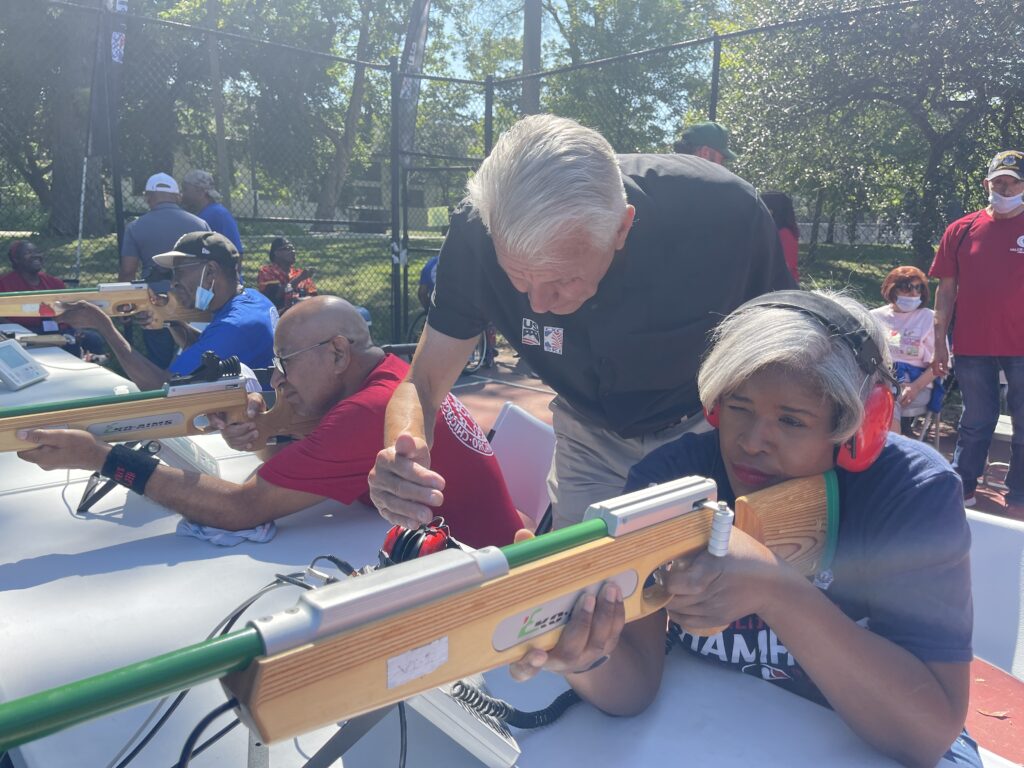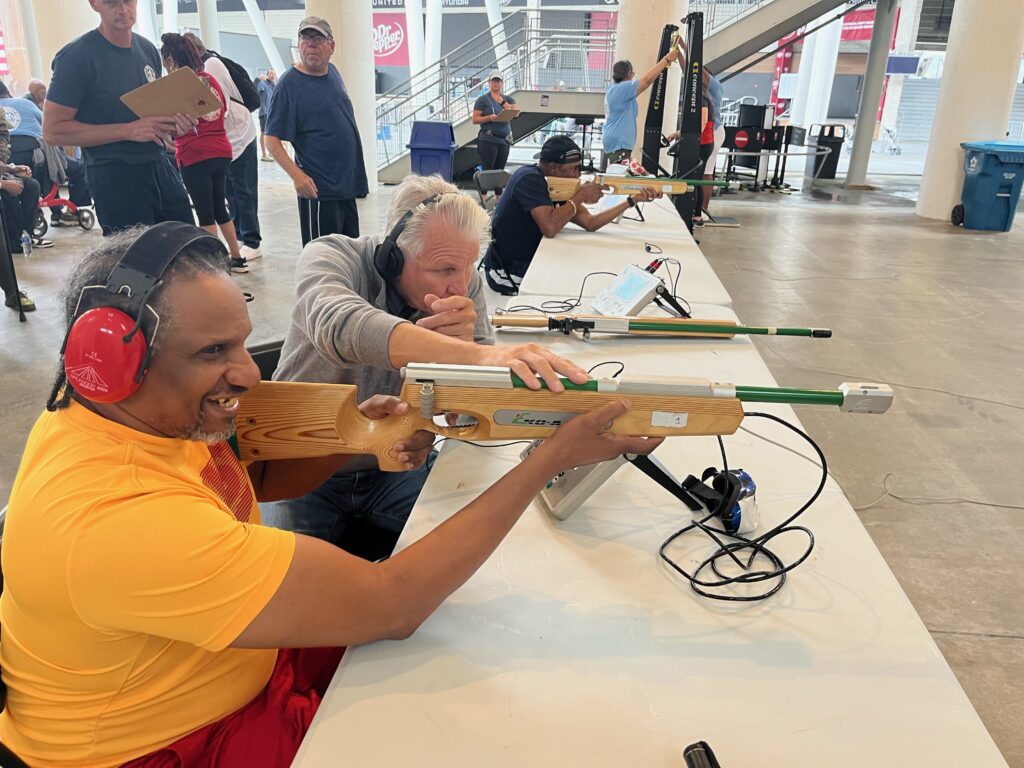Central Cross Country Skiing was able to purchase new ski equipment used in its adaptive program, thanks to a Foreseeable Future Grant.

Yuriy Gusev’s passion for cross-country skiing began while growing up in Russia. His parents would take the family on ski trips on the weekends as a social activity. It was a great way to bond with each other as well as enjoy a healthy physical activity.
“I would mainly just go and ski with my parents when I was little, just having that social time with my family,” Gusev recalled. “It was very casual. We would go on the weekend on casual ski trips. As I got older, I got more into competitive skiing.”
While he never attained Olympic status, Gusev competed at the junior college level before becoming a level 200 certified coach with a bachelor’s degree in cross-country ski coaching and physical education with a minor in sports medicine.
Gusev moved to the United States in 2001, and became executive director for Central Cross Country Skiing (CXC) in 2005. Based in Wisconsin and established in 1999, CXC is the nonprofit governing body for cross-country skiing across the 10-state Central Region of the United States. It holds official recognition from both U.S. Ski & Snowboard as well as the U.S. Olympic and Paralympic Committee.
The organization has also dedicated itself to providing ski programs for people with disabilities, including veterans and blind and visually impaired individuals. As a result, it has been designated a Gold Level Paralympic Sport Club by the USOPC.
Numerous well-known Nordic skiers have trained through the program and gone on to Paralympic success, including Kendall Gretsch, who won two gold medals in women’s biathlon sprint and cross-country long distance sitting in her Paralympic debut at the 2018 Winter Games in PyeongChang,South Korea. She also became the first U.S. female athlete to win gold in biathlon.
Gretsch didn’t take up skiing until 2016, but made quick progress thanks to CXC.
“We got her first to ski (and) we got her to shoot for the first time,” explained Gusev, who has also served on the U.S. Ski & Snowboard Cross Country Sport Committee as well as a member of the American Birkebeiner Ski Foundation. “We introduced her to cross-country skiing and biathlon.”
CXC offers programs for people of all ages and skill levels who wish to be introduced to Nordic skiing. Aside from growing the sport by numerical expansion, the group is firmly committed to creating diversity and inclusion for everyone. Its adaptive program offers recreational outdoor opportunities in cross-country skiing and biathlon to military veterans and others with physical disabilities and visual impairments.
Currently, CXC has three certified coaches, including Gusev. He estimates an average of 10 to 15 blind and visually impaired individuals have taken part in CXC’s various programs and events each year.
“It’s about roughly 5 percent (of total participants). I don’t know how that compares to other sports, but that’s what we have right now.”
Under Gusev’s leadership, CXC conducts several fundraising events each year, including an online auction, raffle, donations and grants. Gusev first became aware of the Foreseeable Future Foundation after receiving a tip from a contact at the USOPC. CXC had a couple of biathlon rifles for the visually impaired that needed to be replaced due to age and extensive use.
Gusev was excited to learn about the Foreseeable Future grants, and applied for the specific purpose of replacing the rifles.
“When I saw it, I thought this would be a great opportunity for us to finally upgrade our old beat-up equipment and get something better than we have so that participants can have a better experience.”
CXC was accepted as a grant recipient, and most of the funding will be used to purchase a modern rifle.
“It’s quite expensive. It’s over a $5,000 setup. But there’s no way around it. If we have visually impaired participants, we need to have it. It’s a big relief that we can finally upgrade our equipment and have the technology.”
For Gusev, there is nothing more fulfilling than being able to provide access to a sport he’s loved since his boyhood days in Russia.
“For me personally, I feel it’s really important for us to have our sport inclusive regardless of ability. It’s important as an organization on a bigger scale. The bigger vision of a nonprofit is to make a better place to be for everybody, including individuals with physical disabilities or visual impairments. It’s a big part of our organization and which I’ve incorporated in every program.”
Anyone who is interested in finding out more information about CXC and how to participate in any of its programs can visit the Contact Page of their website.

